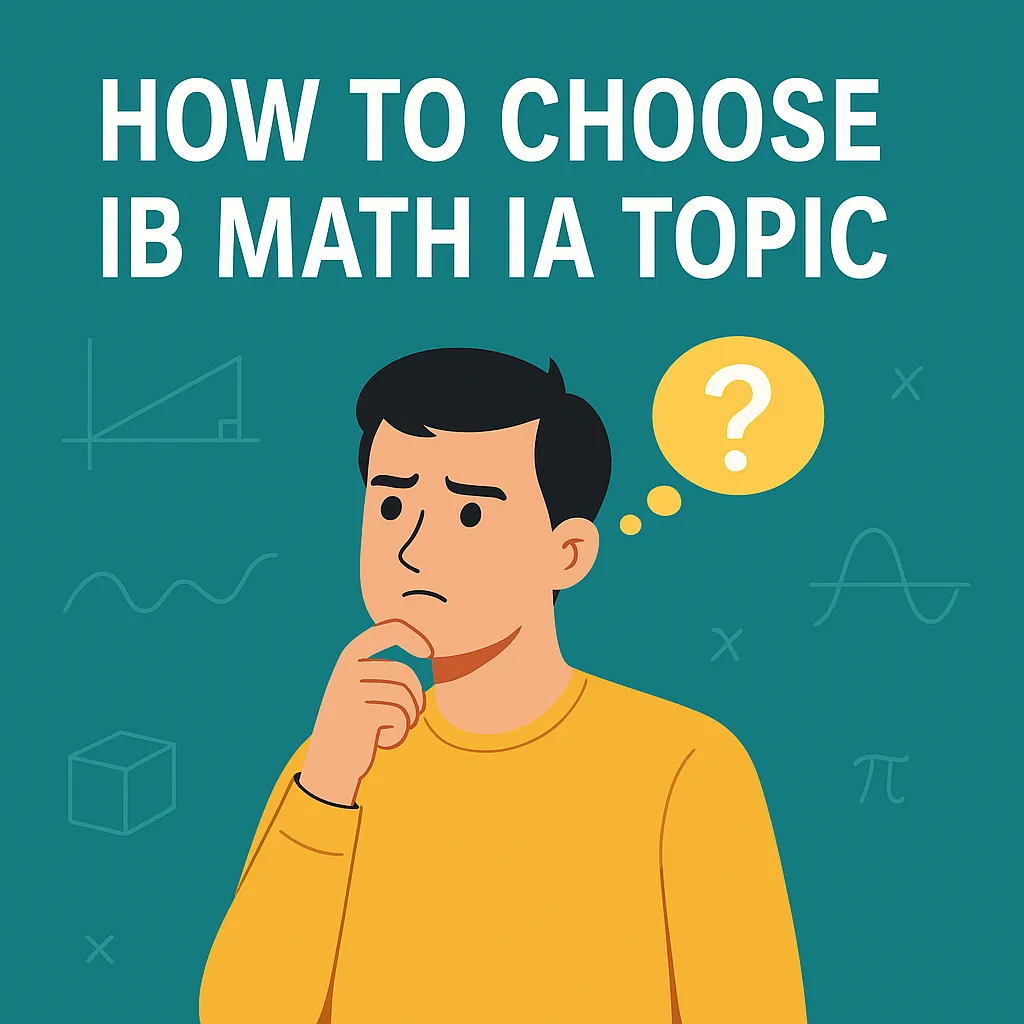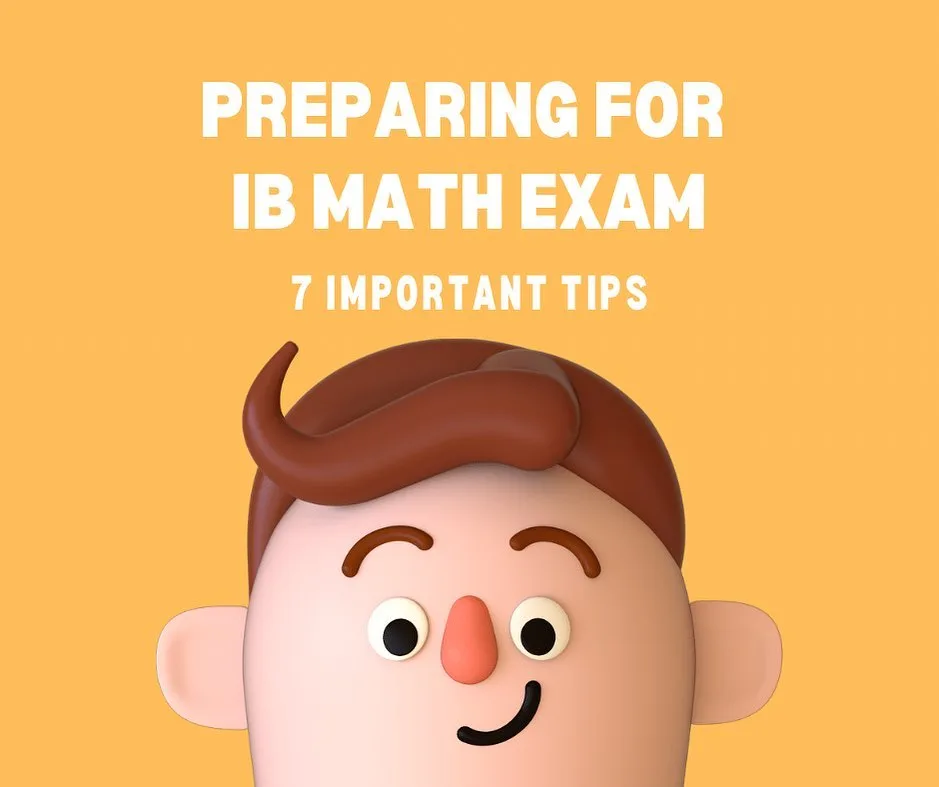How to Choose IB Math IA Topic?
The Math IA is one of the most important parts of the IB Mathematics syllabus. Choosing a topic, however, is often the hardest step in the entire process, and it can cause a lot of stress for IB students. Many get stuck at this stage because they select a topic that is too simple, too broad, or too common. A well-chosen topic, on the other hand, makes the research more engaging and significantly increases your chances of achieving a high score.
In this article, I’ll share the key qualities of a strong Math IA topic, provide examples of good ideas, highlight common mistakes, and offer practical tips to help you set the right direction.
What Makes a Good IA Topic?
- Mathematical Depth
Your IA should involve mathematical techniques you have learned in the IB syllabus, but it should not stop there. Examiners want to see exploration that goes beyond basic applications, not just straightforward calculations. A strong IA often connects mathematics to real-life situations, applies relevant concepts, and pushes further into meaningful analysis or investigation. - Personal Engagement
A great IA is not just an assignment. It should reflect your genuine curiosity. The strongest projects are those where students clearly show interest in their chosen topic. Try to link your IA to your hobbies, everyday experiences, or even future career goals. This personal connection makes your work more authentic and engaging. - Originality
Avoid simply copying ideas from the internet or relying on overused topics such as Fibonacci numbers, π, the golden ratio, or roulette. Examiners see these too often. A fresh angle or unique perspective will make your IA stand out and demonstrate creative thinking. - Feasibility
While creativity is important, your topic also needs to be realistic. Some students come up with ideas that are too ambitious or struggle to connect them with mathematics. Keep your project manageable within the page limit and time frame, and ensure you have access to the necessary data or a clear mathematical model to explore.
Examples of Good IA Topics
- Everyday Life: Optimizing the packaging space for collectible figures.
→ This could involve geometry, volume calculations, and optimization techniques to minimize wasted space while keeping the packaging practical. - Science: Modeling how a shirt dries under different humidity.
→ By applying exponential or logistic functions, you can create a model for the drying rate, supported by experimental data. - Sport: Finding the function for the angle and power of a penalty kick.
→ Use trigonometry, vectors, and quadratic functions to model the ball’s trajectory and determine the optimal shot. - Biology: Using Markov chains to study population changes in a species.
→ Apply probability and transition matrices to model how populations move between different states (e.g., growth vs decline).
Each of these topics combines personal interest with solid mathematics while keeping the scope manageable. They are practical, engaging, and demonstrate exploration beyond the basic syllabus.
Common Mistakes to Avoid
- Picking a topic that is too broad
For example, “the mathematics of climate change” is too wide to analyze properly within a short IA. A narrower focus, like modeling CO₂ emissions with a specific regression, would be more manageable. - Choosing something too simple
Topics that only involve basic arithmetic or formula substitution won’t demonstrate real mathematical exploration. - Using common topics without adding your own perspective
For instance, “the best strategy for Blackjack” has been fully studied by professionals for decades. Unless you bring a fresh approach, examiners will see it as unoriginal. - Selecting a project without enough data or mathematical structure
Sometimes students want to do a statistics-based IA but cannot find reliable data (e.g., “the number of smokers in Hong Kong” without official datasets). In other cases, the idea doesn’t translate well into mathematics (e.g., “how to make a paper airplane fly longer”). - Relying too heavily on AI
AI can be a helpful tool, but it becomes harmful if you simply ask it to generate a topic and use it without understanding. Teachers may question your credibility, and the topic itself may lack creativity since AI often reproduces ideas already explored by others.
Practical Tips to Find Your IA Topic
- Start from your interests
Think about your hobbies, sports, music, games, or daily routines. A topic that excites you will make the research process much easier and show stronger personal engagement. - Look for real-life applications
Ask yourself: “How can I model this situation mathematically?” Whether it’s a scientific experiment, a financial scenario, or a design problem, connecting math to reality always strengthens your IA. - Use appropriate mathematical tools
Consider applying regression, probability, optimization, calculus, or statistics. Choose a method that matches your idea and allows you to go beyond simple calculations. - Refine and narrow the scope
Instead of “math in football,” focus on “modeling the angle and force needed for a penalty kick.” A precise, well-defined question is much easier to explore in depth.
Final Thoughts
Choosing the right Math IA topic is often the most challenging step, but it is also the foundation for a strong project. A well-chosen topic should balance mathematical depth, personal engagement, originality, and feasibility. By avoiding common pitfalls and starting from your own interests, you can create an IA that is both meaningful and manageable.






